Working as a behavioral therapist is challenging and rewarding. These professionals work with people who have been diagnosed with some form of behavioral disorder, which can include schizophrenia, depression, anxiety disorders, and more. As a behavioral therapist, you will help your clients find ways to cope with their condition while teaching them new ways of thinking and behaving. A resume for a behavioral therapist should highlight your exceptional communication skills, ability to remain patient in stressful situations, and knowledge of psychology. A well-written resume will bring you closer to getting hired as a behavioral therapist. Keep reading to learn more about what it takes to become a behavioral therapist and create a fantastic resume! Working as a behavioral therapist requires compassion for others and patience with complex individuals daily. It is not an easy job but very rewarding at the same time. Your resume should reflect this balance of challenges so hiring managers know you are the right person for the job. Keep reading to learn more about how to write the perfect resume if you plan on pursuing this line of work!
Behavioral Therapist Resume Example

Download This Behavioral Therapist Resume as PDF
Psychologist Resume Example
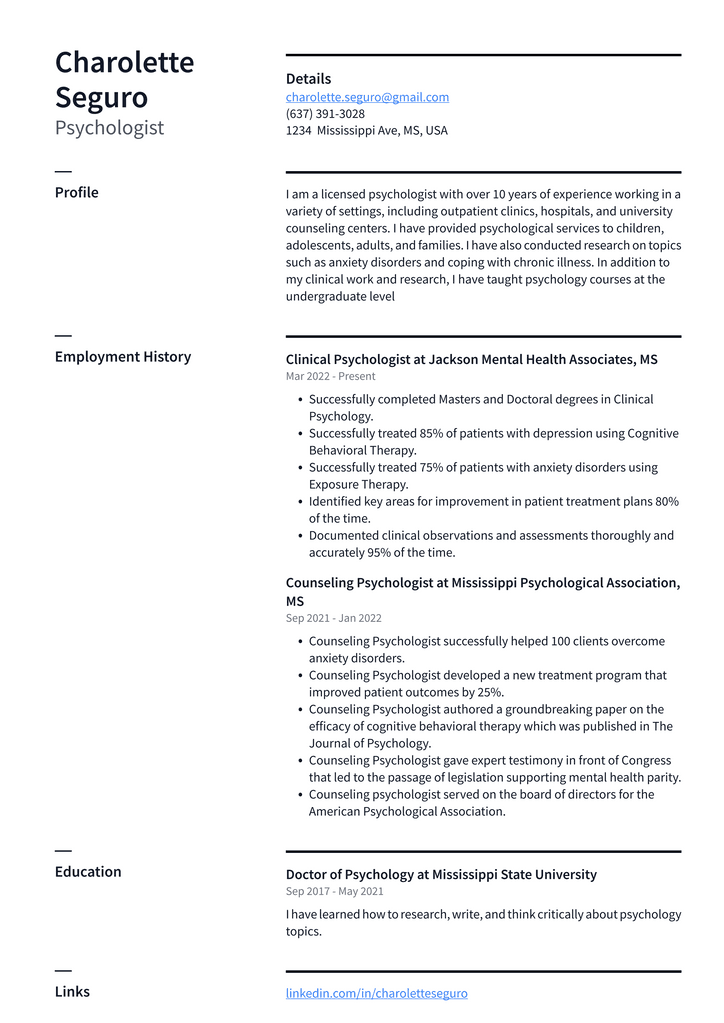
Download This Psychologist Resume as PDF
Counselor Resume Example
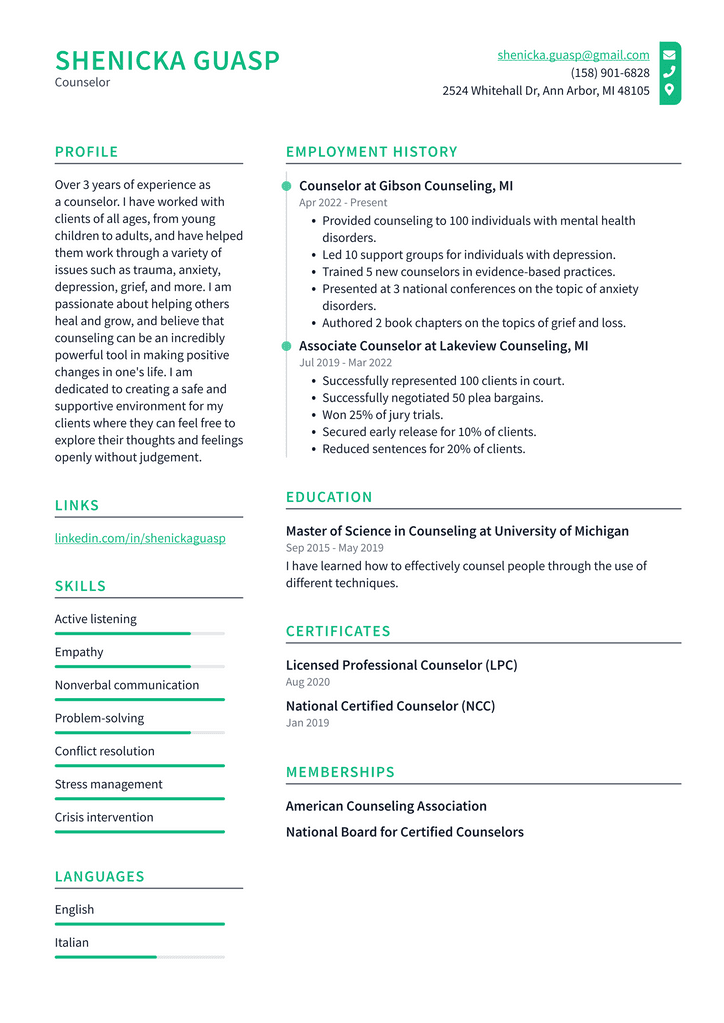
Download This Counselor Resume as PDF
Psychiatrist Resume Example
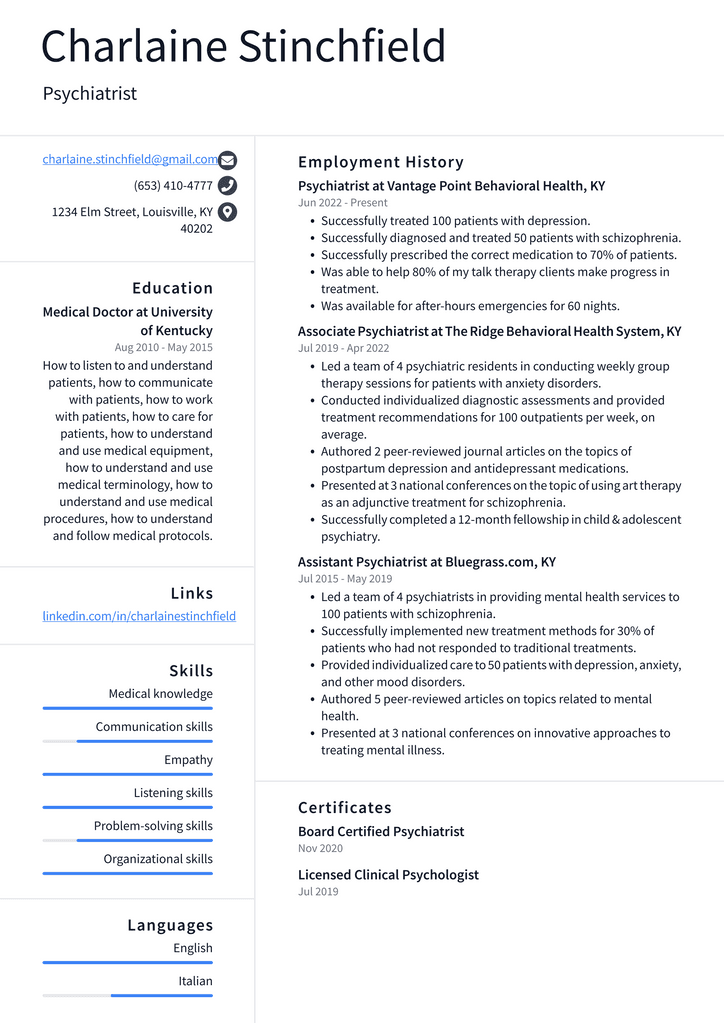
Download This Psychiatrist Resume as PDF
Substance Abuse Counselor Resume Example
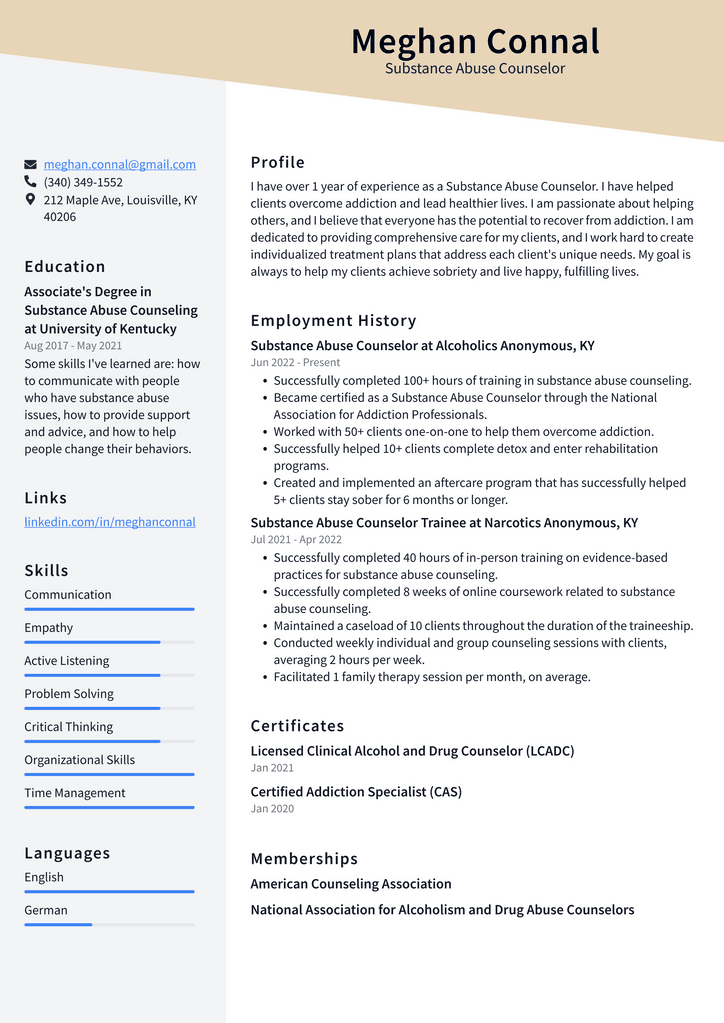
Download This Substance Abuse Counselor Resume as PDF
Marriage and Family Therapist Resume Example
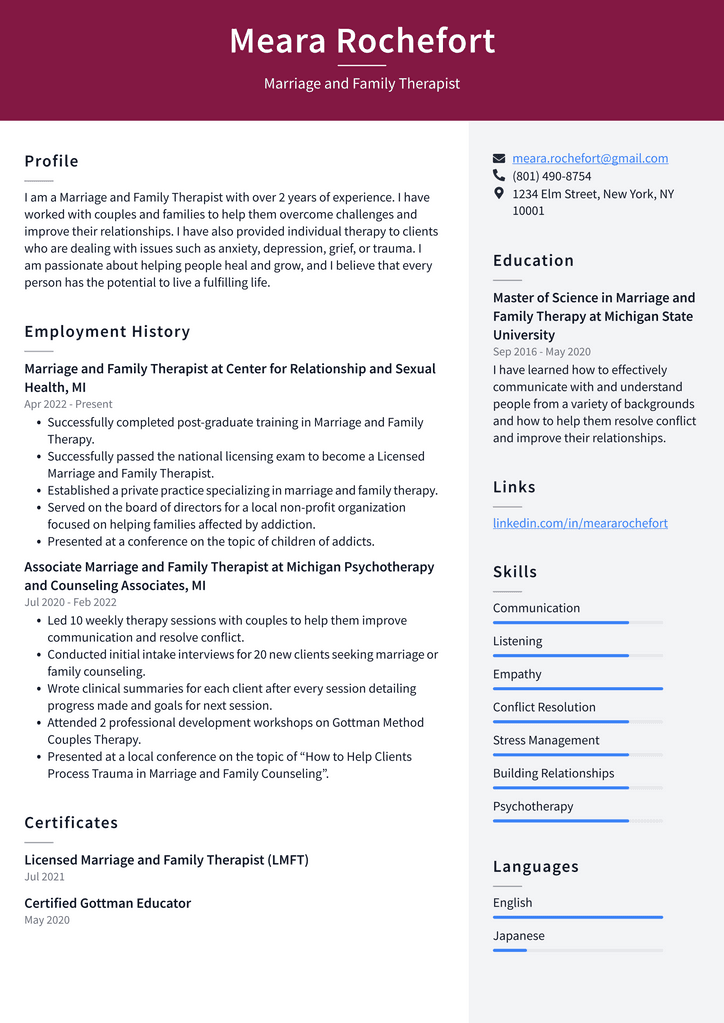
Download This Marriage and Family Therapist Resume as PDF
Social Worker Resume Example
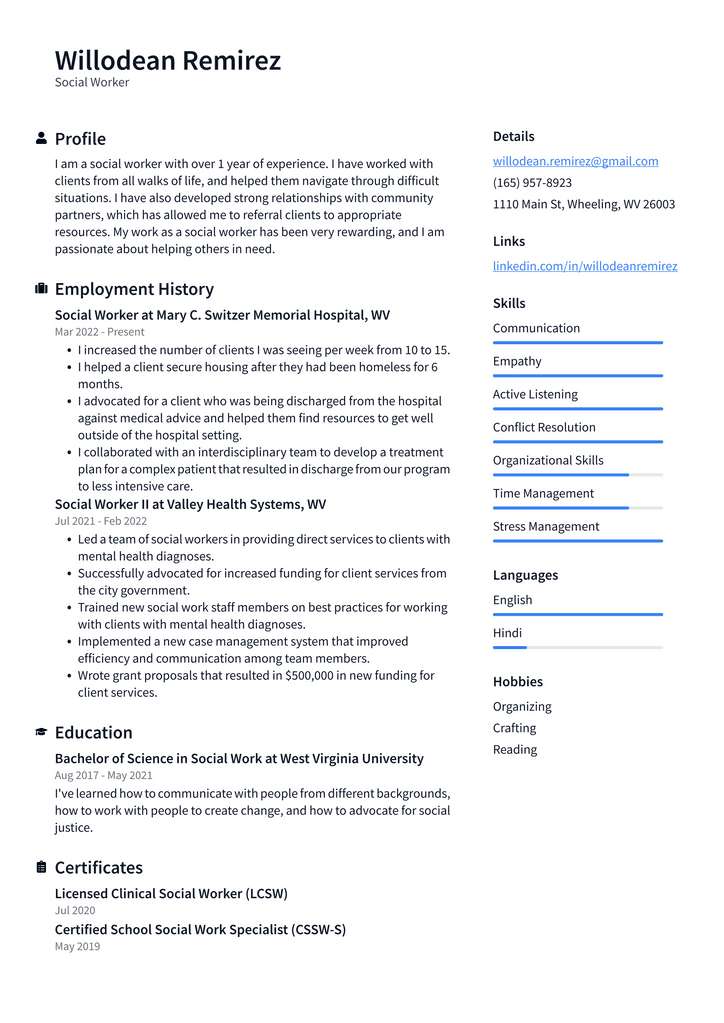
Download This Social Worker Resume as PDF
What You Should Know About Becoming a Behavioral Therapist
Before diving into how to write the perfect resume for a behavioral therapist, let’s first discuss what it takes to become one. Behavioral therapists work with patients who have some form of psychological disorder. Your job will help them overcome this diagnosis and lead an everyday life by teaching them new ways of thinking and behaving. Unlike many other types of therapists, you will also likely work with clients who have been diagnosed with a mental illness or psychological disorder. For example, you might work with patients who have schizophrenia, depression, anxiety disorders, and more. There are many different places where you can work as a behavioral therapist. You could work at a hospital, private practice, school, nursing home, or jail. The best place for you to work as a behavioral therapist depends on your type of person. If you are more introverted, you might want to work in a hospital where you can have one-on-one sessions with patients. If you are more extroverted, you might enjoy working in a school where you can work one-on-many. Before you start applying for jobs, you’ll want to consider your strengths and preferences to find the best fit for you!
What to Include in Your Behavioral Therapist Resume
Your resume is your first chance to get hired as a behavioral therapist, so you want to ensure it is as strong as possible. A behavioral therapist’s resume should include experience, education, skills, and other details about your qualifications for the job. Here are a few specific points on every resume for a behavioral therapist: – Your career history. Include your previous employment and the types of duties you performed at each job. – Education. Please include the name of your degree and the school where you obtained it. – Special skills. Include any skills relevant to a behavioral therapist’s job, such as knowledge of psychology, exceptional language skills, first-aid training, or anything else that sets you apart. – Organizations. Include any organizations you are (or have been) a part of that are relevant to a behavioral therapist’s job, such as the Psychology Club at your school or a volunteer organization.
How to Write a Resume for a Behavior Therapist
Before writing a resume for a behavioral therapist, you should understand what makes a great resume. A behavioral therapist’s resume should be well-organized, concise, and easy to read. Your resume should also include the right mix of detail so hiring managers understand why you’re the best person for the job but don’t get bored reading your resume. Follow these general tips for writing a fantastic resume: – Structure your resume correctly. Resumes are generally written in chronological order, from the present (or most recent) items to the one-time items. Be sure to use appropriate keywords, but don’t stuff them. You want hiring managers to find your resume, but you don’t want them to find a bunch of keywords that don’t represent you. – Use a clean and professional design. Your resume will be the first thing hiring managers see when they look at your application, so it’s essential that it is easy to read and stands out as professional. – Make your resume easy to read. Your resume is a snapshot of your professional life; don’t make hiring managers have to read through a ton of information to understand your experience. Instead, include only the most important details – your education, work experience, and other significant achievements.
Tips for Writing the Best Behavioral Therapist Resume
Now that you know how to write the perfect resume for a behavioral therapist let’s talk about how to write the best behavioral therapist resume possible. Here are a few tips: – Tailor your resume. Your resume should be tailored to each job you apply for. Don’t just take one generic resume and send it to every company you’re interested in working for. Instead, ensure each resume is specific to the job you are applying for. – Make your resume attention-grabbing. The average human attention span is shorter than that of a goldfish, so you want to ensure your resume stands out. You can make your resume quick and to the point, highlight your most significant experience, and use exciting fonts, formats, or colors.
Conclusion
If you’re interested in working as a behavioral therapist, you need a resume highlighting your experience, education, and skills. In addition, you want to ensure your resume is easy to read and attention-grabbing, so hiring managers will notice you and bring you in for an interview. Remember, your resume is your first chance to get hired as a behavioral therapist, so make it count!